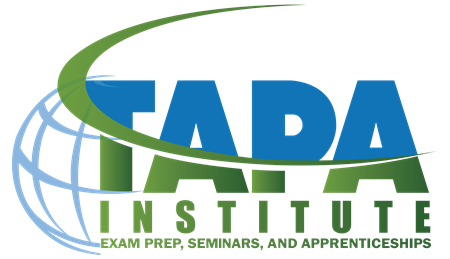Unlocking Resilience with Stress Management Tips for CPA
Several challenges and achievements are involved in the experience of a CPA, beginning with tight schedules and difficult problems to solve, in addition to great responsibilities. A significant part of practicing doctors’ experiences often goes unnoticed, and that is the emotional toll that practice requires. Arguably, there is hardly any time without stress for most CPAs: not when one is preparing for work and not during work time. Fortunately, there are easy and realistic approaches to help in combating stress so that one can exercise control over his or her mental and physical well-being. Among these, stress management tips for CPA professionals are essential in building a sustainable career path.
Understanding Stress in The CPA Landscape
This is not true for CPAs in the same way that unique stressors are not faced by other professions. These professionals need to face burdensome scenarios, such as the pressure of complying with the regulatory requirements as well as tax season overloads, in an accurate and resilient way. Besides affecting health, chronic stress also negatively impacts cognitive performance as time goes on. The first step in finding a good solution is in recognizing the stress not just as a side effect but as a serious concern. Dr. Sabine Charles stresses that stress is not something to ‘just deal with’ but requires active management through mindful strategies.
The Power of Self-Awareness
Self-awareness is one of the core components responsible for effective stress regulation. If you understand the triggers for deciding under pressure, it may be that they stem from client demands, time constraints, or internal expectations. During the coaching sessions, they are urged to pay attention to their feelings whenever they appear. This change of thinking freedom makes room for proper action as opposed to merely reacting. Thus, when self-awareness is integrated into a CPA’s working day, stress inevitably subsides.
Emotional Regulation and Cognitive Clarity
Stress occurs not only in the field of cognition but also in psychosomatic and psychological health. That is precisely why people can be said to suffer from the inability to regulate emotions, which is a pivotal issue in coping with a high-stakes situation. Coaching programs help practitioners to build up their coping mechanisms by addressing such issues as burnout, stress, and frustration. It goes a step further from the skills and delves into the formation of a clear cognition to foster long-term decision-making and leadership.
Prioritization Without Perfection
Most CPAs are workaholics, and this is because perfectionism today is a pitfall that begets procrastination and depression. This, though, needs to be managed by changing the way success is defined and measured. Not all work needs maximum output or thorough proofing, for example. One of the things that one can learn in life is how to look at priorities by choosing effective actions.
Boundaries As A Professional Asset
Establishing and maintaining professional boundaries is an essential aspect of living a healthy lifestyle while engaging in high-profile careers. Whether it is to accomplish self-related tasks or avoid checking work emails in the evenings, boundaries safeguard time and maintain equilibrium. Dr. Sabine Charles shows the audience that setting bounds is not a form of fear; it is a sign of being in charge of oneself. It enables the CPAs to work to the maximum of their capability while still maintaining their physical and social well-being.
Reframing Stress As An Opportunity
Stress is not inherently negative. When done right, it becomes a sign that there is something that needs to be checked. This change from a threat to a challenge reveals a considerable source of motivation and understanding. By developing tailored support and step-by-step processes, the professionals effectively teach CPAs that stress does not have to be a problem. Through stress management tips for CPA professionals, even high-pressure environments can become growth opportunities.
Creating A Supportive Ecosystem
Stress should not be tackled alone. To avoid feeling alone in this experience, it is wise to build a support structure through colleagues or by hiring a mentor or a life coach. TAPA Institute uses comprehensive stress management with community, specialists, and self-help support strategies. Dr. Sabine Charles is convinced of the possibility of providing a quiet and secure area in which professionals could regain their strength and safely return to their work.
The Path Forward
As requirements become more complex and challenging, it is crucial to enhance ourselves in terms of mental and emotional health. Success is not only about technical skills; in fact, it is about mastering oneself. Institutions such as TAPA Institute help professionals to leave toxic culture and patterns of stress to find joy and meaning in their work again.
It does not matter if you are a new CPA or struggling to deal with CPA on a daily basis; Dr. Sabine Charles and the great programs at TAPA Institute can help. Along with the tools of awareness, boundaries, and emotional regulation, those in the profession practice not just the prevention and mitigation of stress but mastery over it.

